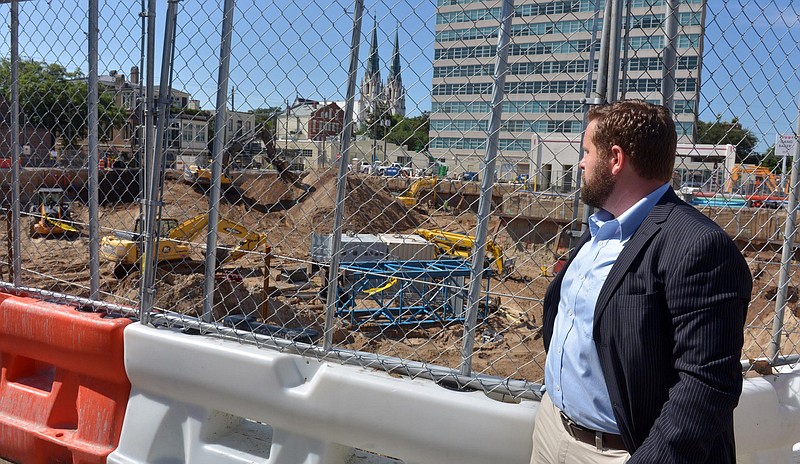SAVANNAH, Ga. - Renewed development in Savannah's historic district has revived efforts to protect the city's underground history and its remnants.
Archaeologist Phillip Ashlock is urging the city to adopt an archaeological ordinance, The Savannah Morning News reported. Savannah has no archaeological requirements in place for city or private projects, Ashlock said.
Ashlock said his aim is not to stop development, but to make sure there is a review process for developers to follow to preserve and document historic sites.
"The past doesn't belong to anybody," he said. "We're stewards of what came before us, and it's our responsibility to take care of it."
Ashlock says he's circulating an online petition to garner support for building requirements that would help prevent the loss of historic resources. He also would like to see the city hire an archaeologist to coordinate preservation efforts. He said the aim is to make sure there is a review process for developers to follow in order to preserve and document historic sites.
The Chatham County-Savannah Metropolitan Planning Commission is working to create a program for developers to voluntarily conduct archaeological studies, the Savannah newspaper reported. It would include incentives for developers who voluntarily comply with requirements.
Under the proposed policy, developers that agree to perform studies for large-scale projects would be permitted to build an additional story beyond the area's height limits. Four percent of the project's cost, with a cap of $500,000, would have to go toward archaeology, outreach and education.
The incentive approach is a change in direction after an attempt about four years ago to develop an archaeology ordinance failed to move forward, said Ellen Harris, the Chatham County-Savannah Metropolitan Planning Commission's director of urban planning and historic preservation.
Archaeology helps tell the story of the people who built the buildings, Harris said.
"That story isn't told in the structure anymore," she said.
Historic artifacts are discovered regularly during construction projects. Recently, workers dug up about 50,000 19th century bricks hand-crafted by slaves, known as Savannah Greys, during the construction of a hotel on the south side of River Street at MLK.
A stoneware jug dating back to the early 19th century was also recently discovered during the construction of a ferry shelter on River Street north of City Hall.
The handle was broken off by machinery during the project, but the rest of the jug is intact and in the city's possession after Luciana Spracher, Savannah's library and archives director, heard about the discovery and rushed down to claim the artifact.
"I'm not sure what would have happened if I hadn't found out about it," Spracher said.
However, Ashlock said the discovery of an artifact is not the same as determining the historic object's story.
"Context is very important," he said. "Digging is different than archaeology."
Savannah would not be the first city to adopt protections for its buried past. Other governments that have adopted archaeological ordinances include St. Augustine, Florida; Beaufort County, South Carolina; and Hilton Head, South Carolina.
Alexandria, Virginia, has one of the best models, Harris said.
